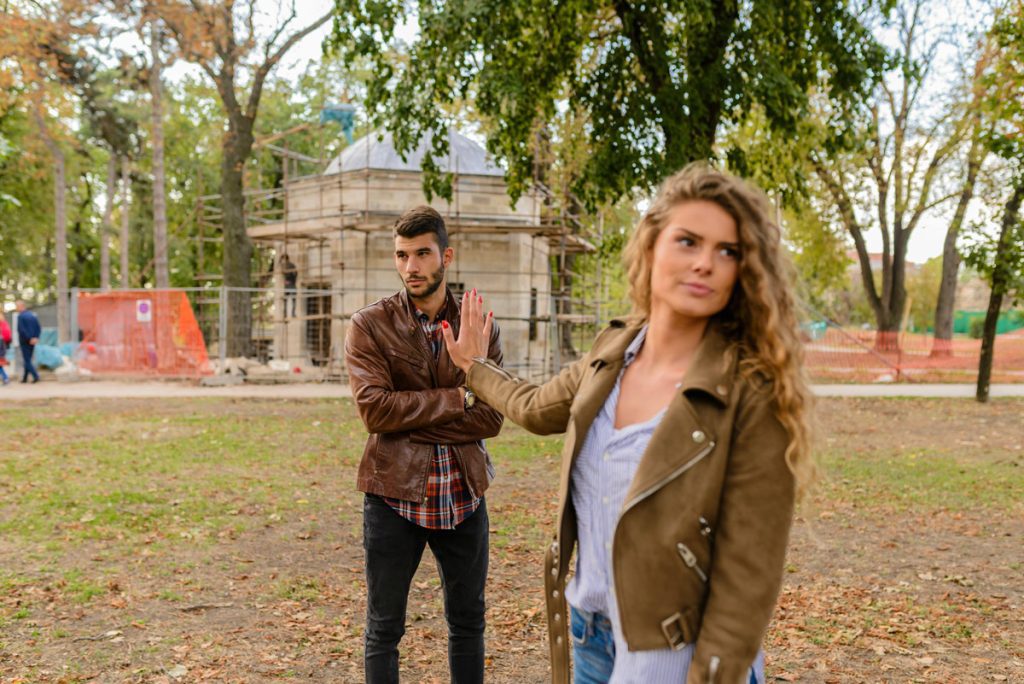It starts with something small—a missed call, a forgotten errand, or a distracted response. Suddenly, your heart pounds, your chest tightens, and a surge of frustration or fear overtakes you. Before you know it, you’re snapping at your partner, assigning blame with more heat than the moment seems to warrant. Later, you’re left wondering, “Why did I react that way?”
If you’ve ever found yourself in this cycle of overreaction and blame in your relationship, you’re not alone. For many people, the roots of these emotional flare-ups lie deep within childhood trauma—experiences we believed were long buried but continue to echo into our adult lives and relationships.
How Childhood Trauma Manifests in Adult Relationships
Childhood trauma can take many forms—neglect, emotional abuse, parental conflict, abandonment, or even simply growing up in a household where your emotional needs weren’t met. These early experiences don’t stay in the past. Even in adulthood they shape the way we view the world, ourselves, and those closest to us.
Our brains develop coping mechanisms to survive pain and unpredictability. But those same strategies—such as emotional numbing, hypervigilance, people-pleasing, or lashing out—can wreak havoc in our adult relationships, especially with a spouse or partner. When a spouse unintentionally mirrors something from our childhood—such as withdrawing during conflict or failing to validate our feelings—it can trigger a cascade of emotions that feel overwhelming and irrational.
The Trigger–Blame Cycle
Triggers are emotional reactions rooted in past trauma. They can be sparked by a tone of voice, a specific phrase, a facial expression, or even a sense of being ignored. While the current situation may be relatively neutral, the body and brain react as if we are back in that unsafe or painful moment from childhood.
The most common reaction? Blame.
Blame becomes a defense mechanism—a way to displace the discomfort we’re feeling and project it outward. In the heat of the moment, it feels safer to accuse our spouse of “making us feel this way” than to confront the raw vulnerability of our past pain.
For example, if your partner takes a phone call during dinner and you immediately feel abandoned or unimportant, your reaction may not match the present situation—it may be the voice of your younger self, longing to be seen by a parent who was emotionally unavailable.
Why It’s Not Your Spouse’s Fault
Here’s the hard truth many of us must face: our spouses are not responsible for our pasts, nor are they responsible for healing our inner wounds. They may unintentionally trigger us, but the reaction belongs to us. Holding them accountable for our unresolved trauma creates a destructive dynamic where intimacy, trust, and mutual respect erode.
This doesn’t mean your feelings aren’t valid—they are. But part of healing is learning to separate the past from the present and recognizing when a childhood wound is being activated.
Healing Starts with Awareness
The first step toward breaking this cycle is awareness. Begin by noticing your emotional responses. When you feel triggered, pause and ask:
What am I really feeling?
Does this feeling remind me of something from my past?
Am I responding to the present moment, or an old wound?
Journaling, therapy, or inner child work can be powerful tools for identifying patterns and unpacking the deeper roots of your triggers. You might discover that your anger is actually a mask for sadness, your resentment is a manifestation of fear, or your criticism is a cry for connection.
Communicating With Compassion
Once you begin to recognize your triggers, the next step is learning how to communicate them to your partner. This can feel vulnerable, especially if your instinct is to protect yourself by attacking or withdrawing. But opening up can create a bridge between you and your spouse, rather than a wall.
Try statements like:
“When this happened, I felt something old come up for me. I think it’s connected to my past.”
“I know I reacted strongly, but I’m realizing it wasn’t just about what happened—it brought up a lot of pain from before.”
“I’m trying to understand why this made me so upset, and I’d like your support as I work through it.”
Your willingness to own your triggers and speak from a place of honesty can invite your spouse into a space of deeper understanding and empathy.
You Are Not Alone
Blaming your spouse for your pain doesn’t make you a bad person—it makes you human. But staying in that pattern keeps you stuck. Healing doesn’t mean never getting triggered. It means learning to respond differently when you do.
Many couples face these struggles silently, believing that conflict is a sign of incompatibility or failure. In reality, it’s often an invitation to heal—to grow closer not only to your partner but to yourself.
If you find yourself trapped in a pattern of blame and reactivity, it may be time to seek help. Trauma-informed therapy, couples counseling, or support groups can provide guidance, tools, and a path toward healing.
Because when we heal the child within, we free the adult to love with more clarity, compassion, and courage.
About the Author: Anthony L. is in charge of marketing operations at We Level Up focused on emotional intelligence and trauma-informed healing. He helps individuals transform pain into purpose through storytelling and inner child work.
https://welevelupwa.com/mental-health/dr-ali-nikbakht-lmft-psyd-dr-al
Photo by Vera Arsic: https://www.pexels.com/photo/man-and-woman-in-brown-leather-coat-standing-on-brown-soil-984946/
The opinions and views expressed in any guest blog post do not necessarily reflect those of www.rtor.org or its sponsor, Laurel House, Inc. The author and www.rtor.org have no affiliations with any products or services mentioned in the article or linked to therein. Guest Authors may have affiliations to products mentioned or linked to in their author bios.
Recommended for You
- The Hidden Cost of Missed Diagnoses: Neurodivergence, Trauma, and Mental Health - January 19, 2026
- How to Change Unhealthy Habits: What a Therapist Learned from Hundreds of Clients - January 15, 2026
- Inner Child Healing: 5 Practices to Reconnect With Your Younger Self - January 12, 2026







